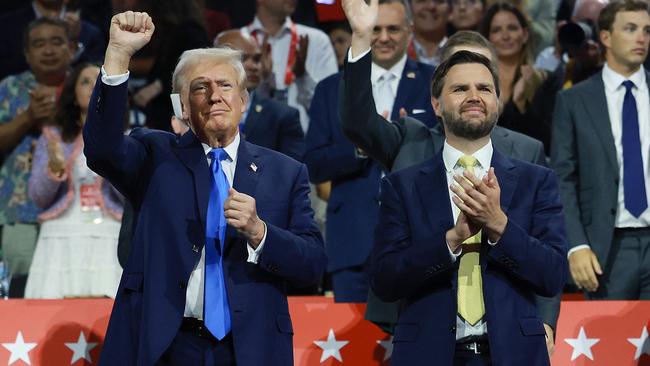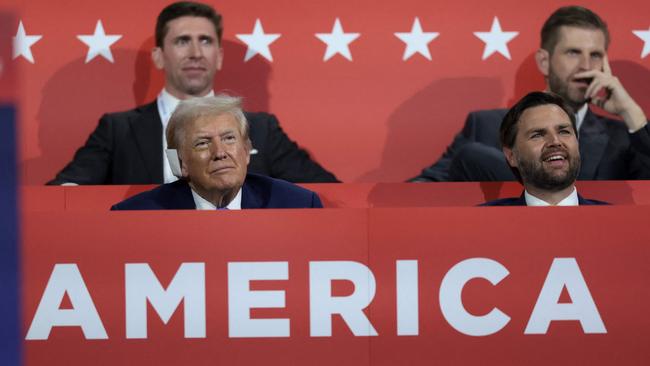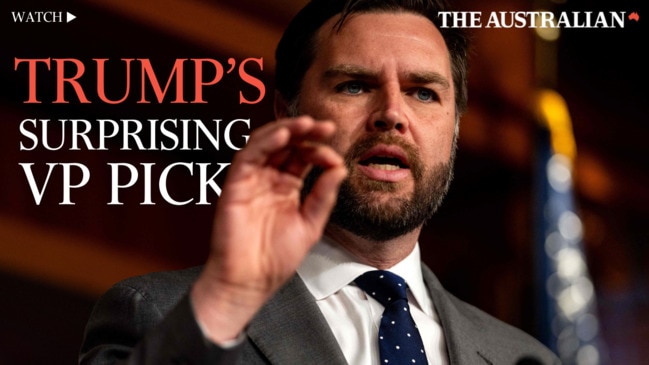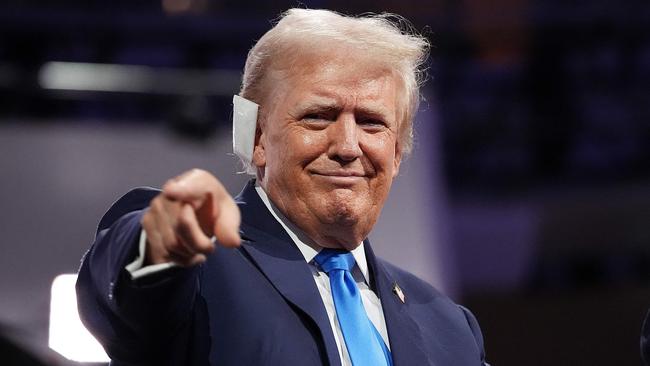
His selection by Donald Trump is simultaneously the culmination of the former president’s complete takeover of the Republican Party and the planned inauguration by Trump of a new era in American politics.
In choosing the 39-year-old senator from Ohio over other, arguably more qualified or more electorally appealing candidates, Trump has written what he hopes will be his political legacy – the transformation of the party from a shifting coalition of conservative, pro-business, interventionist foreign policy interests, into a fully fledged vehicle for Trumpian populism well beyond a second (and by constitutional mandate, final) presidential term for Trump himself.
To understand the significance of Trump’s choice, consider how different this selection was from the one in 2016.
Mike Pence was picked as a gesture of outreach to mainstream Republicans who still held sway in the party and were far from convinced the neophyte presidential candidate was one of them. Trump barely knew Pence and had little in common with him ideologically or personally. (Pence liked to open meetings with a prayer and once said he would never dine alone with a woman other than his wife – not a stricture Trump has ever been likely to follow.)
But Pence was the conventional Republican par excellence – a devout social conservative with a record of pro-business legislation and a disciple of Ronald Reagan’s robustly engaged US foreign policy. Vance could hardly be more different.

True, he is also a Midwesterner and a devout Christian. Vance may once have lambasted Trump as an “American Hitler”, but like most Republicans he has signed up enthusiastically to the new leadership.
What distinguishes him, though, is that he has not just embraced Trump’s instinctual “America First” message, he has provided an intellectual ballast for it. The Yale law graduate, author of the acclaimed Hillbilly Elegy (his autobiographical tale of growing up in the dystopia of Middle America), former Marine and successful venture capitalist, Vance has unquestioned heft.
He has applied that brainpower to a character formed by an unusual upbringing that gave him a rare understanding of the anomie and alienation many working-class Americans feel for their political leadership – on both sides.
After his conversion to Trump, Vance became an outspoken advocate. In his campaign for the Senate in 2022, he beat several more conventional conservatives to the Republican nomination and then beat a working-class Democrat for the seat.

He has established himself as the most articulate agent of what its supporters like to call “national conservatism”. He favours a radical reordering of foreign policy priorities to focus on a narrower set of objectives – confronting China, supporting Israel and distancing itself from military commitments in Europe.
On domestic policy, he speaks with passion about the erosion of cohesive communities and families by the rapid growth of mass-scale capitalism, mass immigration of low-skilled workers, and the hollowing out of traditional American industry, to which he ascribes much of the proliferation of social despair reflected in high levels of alcohol, drug abuse, crime and suicide.
Accordingly, he rejects much of the laissez-faire economic liberalism of Reagan-style conservatism, favouring policies designed to rein in the excesses of capitalism and supporting tax and spending measures aimed at bolstering working-class families.

This is Trump’s planned-for legacy. Delivered days after he survived an assassination attempt, his choice conveys testamentary significance. If the pair win in November, Vance will have the inside track for the 2028 presidential nomination. Whether there is anything left of the old Republican coalition to oppose him will tell us how successful Trump-Vance will have been.
The Times






When JD Vance takes the stage on Wednesday night (Thursday AEST) at the Republican convention to receive the party’s nomination as its vice-presidential candidate, it will mark both a beginning and an end.